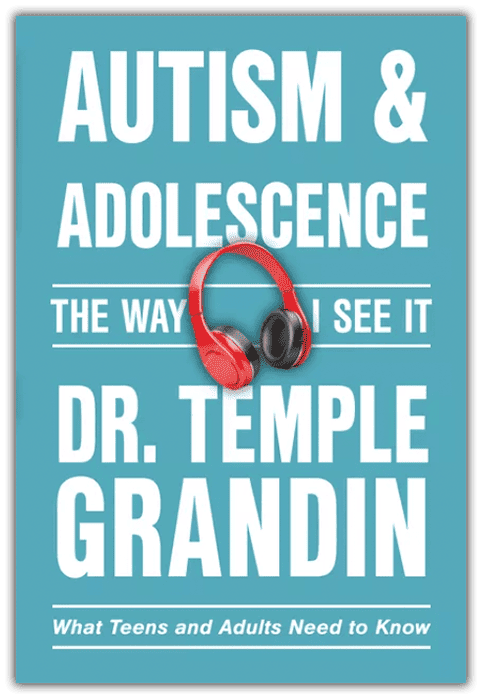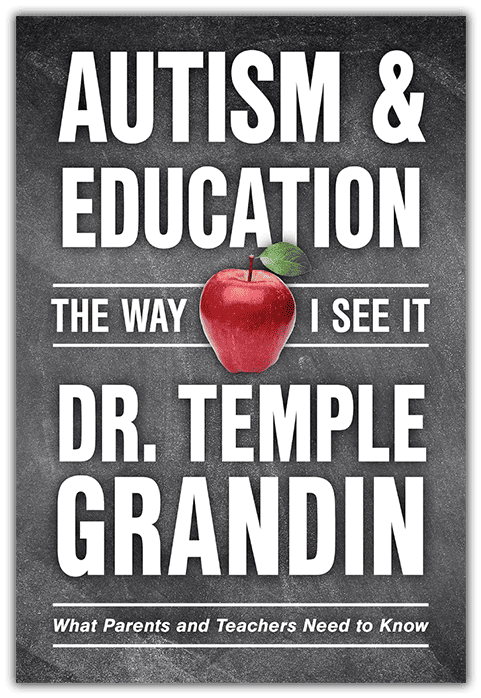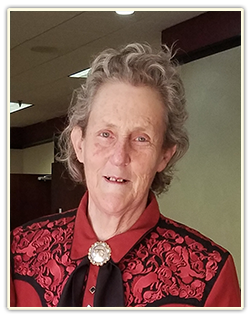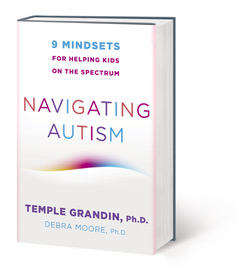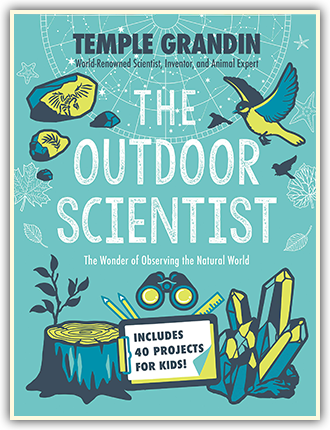
Webinars & Conferences
Upcoming Conferences
May 21 - Ralston, NE
May 28 - Boise, ID
May 30 - Nashville, TN
June 17 - Connecticut
September 19 - Cincinnati, OH
A MUST LISTEN!!
Temple's Latest Books!
Temple Grandin earns Dole Leadership Prize!
NAVIGATING AUTISM
"The Outdoor Scientist"
Summer Jobs for Older Kids with Autism
When I was a teenager and later on when I was going to college, summer jobs and internships taught me both independence and the responsibility of doing a job. For fully verbal individuals, it is essential that they learn how to do tasks on a schedule for people outside the family. Mother set up my first job when I was 13. She visited a freelance seamstress and offered her my services. She explained that I was kind of different and really good at hand sewing. For two afternoons a week, I took apart dresses, which had been brought in for alterations, and hand hemmed them. I also loved the money I got. At the age of 15, I went to my aunt’s ranch. She operated a guest ranch in the summer and I had to wait on the children’s table and take guests on trail rides. Later on in college, I had two internships. One was at a research lab where I conducted pharmaceutical experiments. This also provided the experience of renting a house with another lady. The following summer I had another internship where I was an aid for a child with autism. In both internships, they were on a schedule five days a week. The internships were set up by both my mother and contacts at my college. These work experiences OUTSIDE the home were vital for my success.
Young kids 10 to 14 should be doing jobs such as church volunteer jobs, walking dogs for the neighbors or running yard sales. The instant they are of legal age, they need to get REAL jobs. Ideally they should have two different real summer jobs BEFORE they graduate from high school. Use your business connections in the neighborhood to set up jobs. I have talked to individuals who successfully graduated from college, but failed in the workplace. In many cases, these individuals had NEVER had a job in both high school and college. Often they would lose jobs because they did not get to work on time. I learned how to work, long before I graduated from college. I cleaned horse stalls at my school and I learned entrepreneurship by painting signs and selling them.
When I talk to parents about having their teenager get a job, they will often say, “I am thinking about it.” They need to stop thinking about it and get their teenager into a job. They need to do it, not think about it. Often jobs can be easily set up by working with personal contacts in the neighborhood.
About Temple Grandin
Dr. Grandin did not talk until she was three and a half years old. She was fortunate to get early speech therapy. Her teachers also taught her how to wait and take turns when playing board games. She was mainstreamed into a normal kindergarten at age five. Oliver Sacks wrote in the forward of Thinking in Pictures that her first book Emergence: Labeled Autistic was “unprecedented because there had never before been an inside narrative of autism.” Dr. Sacks profiled Dr. Grandin in his best selling book Anthropologist on Mars.
Dr. Grandin became a prominent author and speaker on both autism and animal behavior. Today she is a professor of Animal Science at Colorado State University. She also has a successful career consulting on both livestock handling equipment design and animal welfare. She has been featured on NPR (National Public Radio) and a BBC Special – "The Woman Who Thinks Like a Cow". She has also appeared on National TV shows such as Larry King Live, 20/20, Sixty Minutes, Fox and Friends, and she has a 2010 TED talk. Articles about Dr. Grandin have appeared in Time Magazine, New York Times, Discover Magazine, Forbes and USA Today. HBO made an Emmy Award winning movie about her life and she was inducted into the American Academy of Arts and Sciences in 2016.
When she was young, she was considered weird and teased and bullied in high school. The only place she had friends was activities where there was a shared interest such as horses, electronics, or model rockets. Mr. Carlock, her science teacher, was an important mentor who encouraged her interest in science. When she had a new goal of becoming a scientist, she had a reason for studying. Today half the cattle in the United States are handled in facilities she has designed.
